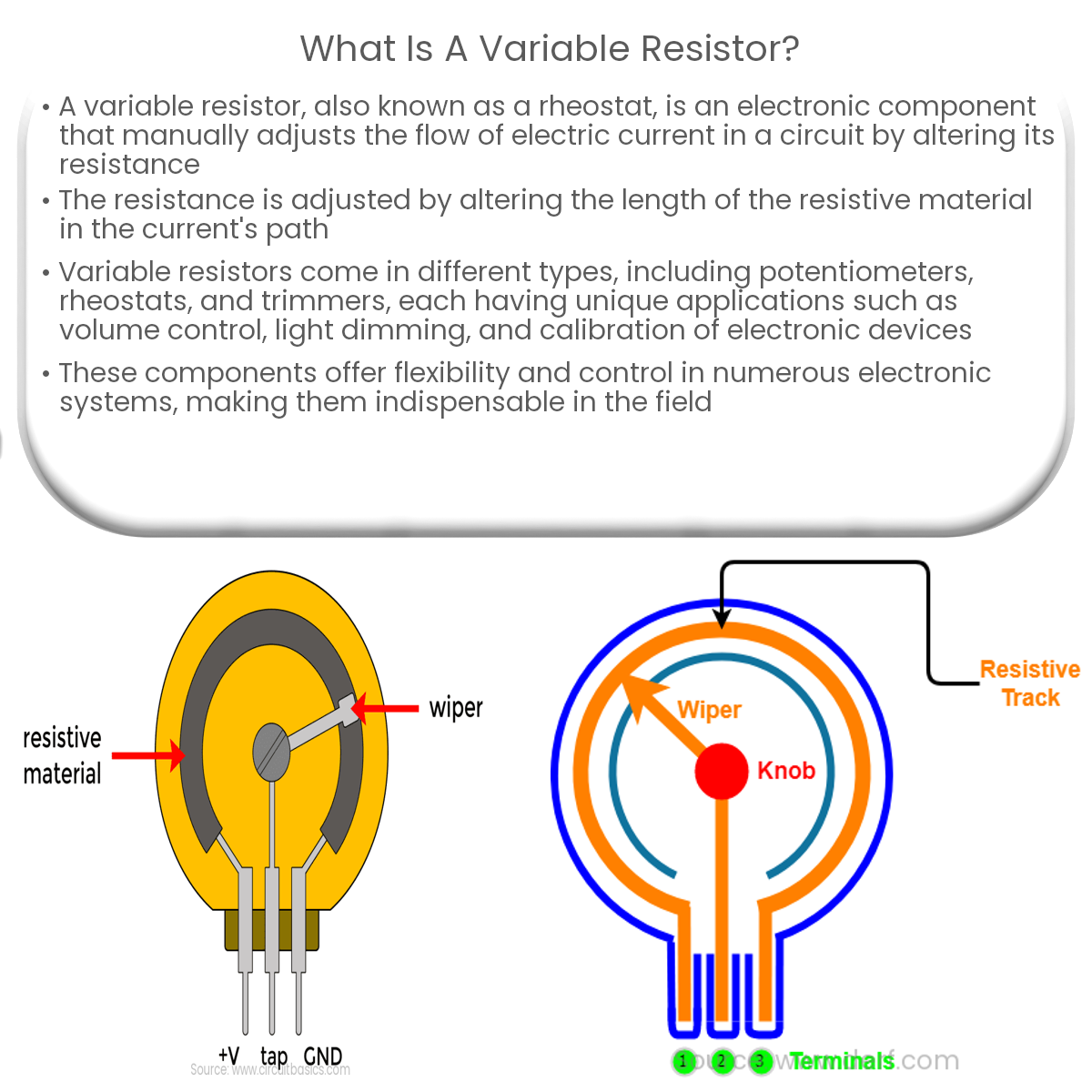A variable resistor is an adjustable electronic component that controls current flow in a circuit by altering its resistance, used in various applications.
Introduction
A variable resistor is an essential electronic component that allows users to manually adjust the flow of electric current through a circuit by altering its resistance. This article will provide an overview of variable resistors, their working principle, types, and applications.
What is a Variable Resistor?
A variable resistor, also known as an adjustable resistor or a rheostat, is a type of resistor whose resistance can be adjusted by moving a mechanical component, such as a sliding contact or a rotating knob. The ability to change the resistance value offers flexibility in controlling the flow of current and the voltage across different components within a circuit.
Working Principle
The primary working principle of a variable resistor involves altering the length of the resistive material in the path of the electric current. As the length of the resistive material increases, the resistance increases, and the flow of current decreases. Conversely, as the length of the resistive material decreases, the resistance decreases, and the flow of current increases.
Types of Variable Resistors
Variable resistors are available in different configurations, including:
Applications of Variable Resistors
Variable resistors find use in various applications, including:
Conclusion
A variable resistor is an adjustable electronic component that allows for the manual control of current flow and voltage levels in a circuit. With various types and configurations, variable resistors are essential in numerous applications, offering flexibility and control in electronic systems.


